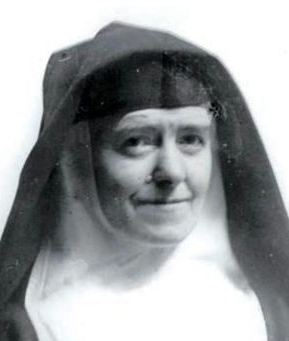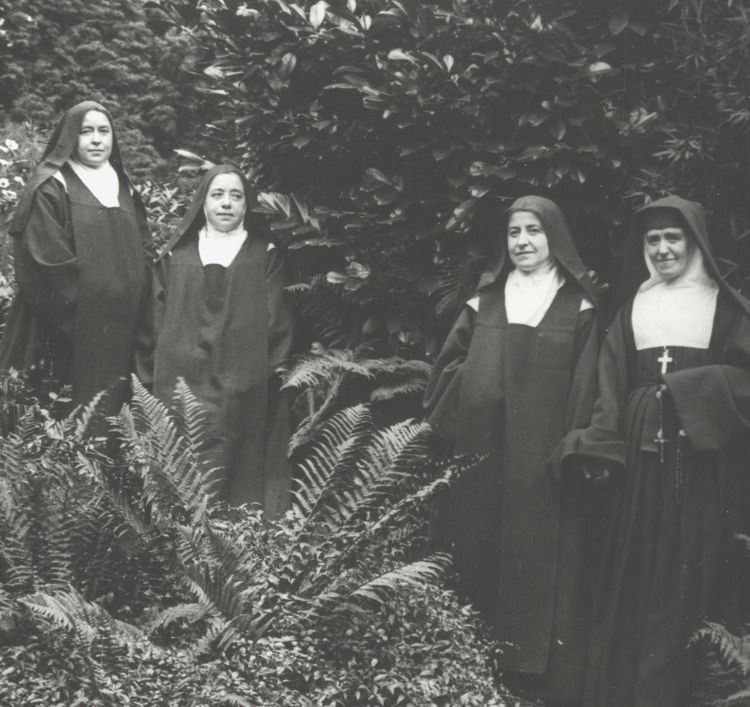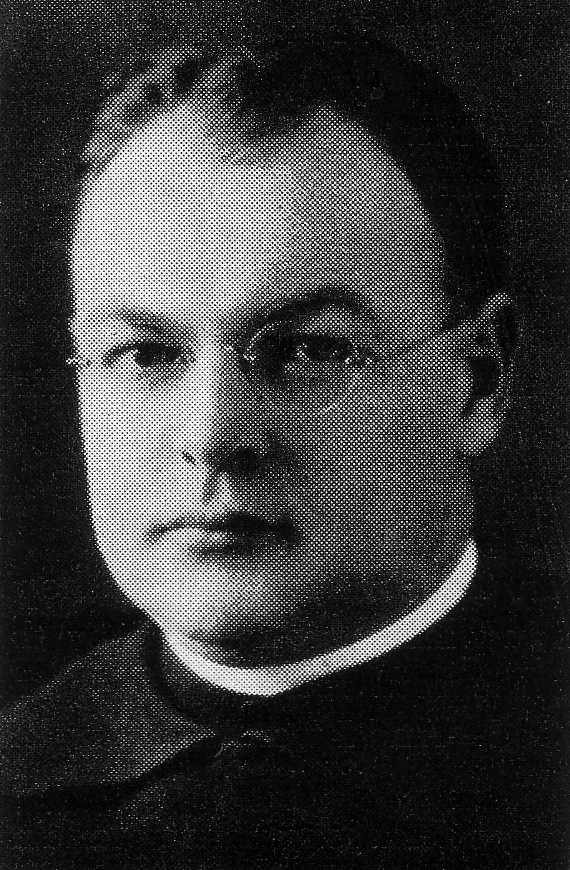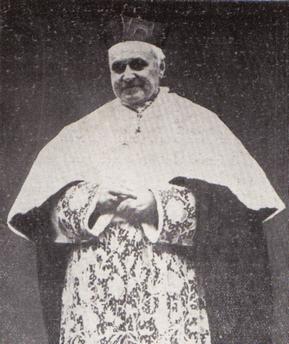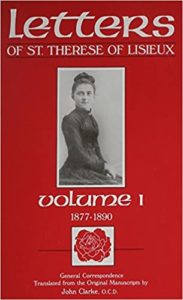Podcast: Play in new window | Download (Duration: 35:23 — 24.4MB) | Embed
Subscribe: Apple Podcasts | Spotify | Amazon Music | Android | Pandora | iHeartRadio | JioSaavn | Podchaser | Gaana | Podcast Index | Email | TuneIn | Deezer | Anghami | RSS | More

Letter 162 – The Letters of St. Elizabeth of the Trinity – Beginning to Pray with Dr. Anthony Lilles
Dr. Anthony Lilles and Kris McGregor discuss a 1903 letter from St. Elizabeth of the Trinity to her aunts. The letter reflects on her deep connection with her family despite geographic distances, and their bond through Christ.
Elizabeth, having emerged from a spiritual “dark night,” expresses profound peace and joy in her Carmel life. She touches on the looming persecution of French religious orders and the potential exile of her convent, yet remains focused on her spiritual journey and relationship with her aunts.
The letter also highlights her rich liturgical experiences, especially during Easter, and her unwavering faith amidst trials. Her descriptions of prayer, memories, and shared spiritual practices with her family shows how Elizabeth’s faith strengthens her resilience and deepens her connections, offering an inspiring model of spiritual devotion and holy indifference.

Letter 162
[April 28–30, 1903]
Dijon Carmel, April
J. M. + J. T.
“My good little Aunts,
It seems to me that Carlipa and Dijon are very close, for my heart has quickly jumped the distance to go find yours! And my Divine Bridegroom gives me wings like this so I can fly off to you: these wings are prayer, and then this unity in faith and love creates the communion of saints! . . . I have many things to tell you, my little Aunts, but where to begin? Oh! if you knew how beautiful Holy Week is in Carmel! I wish you could have attended our beautiful Offices, and especially on our beautiful feast of Easter. On that day, we chant Matins at 3 o’clock in the morning, we enter the choir in procession, wearing our white mantles, each holding a candle and singing the Regina Coeli. At 5 o’clock, we have the Mass of the Resurrection, followed by a magnificent procession in our beautiful garden. Everything was so still, so mysterious, that it seemed our Master was going to appear to us along the solitary paths as He once did to Mary Magdalene, and if our eyes did not see Him, at least our souls met Him in faith. Faith is so good; it is Heaven in darkness, but one day the veil will be lifted and we will contemplate in His light Him whom we love; while awaiting the Bridegroom’s “Veni” we must spend ourselves, suffer for Him, and, above all, love Him greatly. Thank Him for having called your little Elizabeth to Carmel for the persecution;2 I do not know what awaits us, and this perspective of having to suffer because I am His delights my soul. I love my dear cloister so much, and sometimes I have wondered if I don’t love this dear little cell too much,3 where it is so good to be “alone with the Alone.”4 Perhaps one day He will ask me to sacrifice it. I am ready to follow Him everywhere, and my soul will say with Saint Paul: “Who will separate me from the love of Christ?”5 I have within me a solitude where He dwells, and nothing can take that away from me! . . .
Guite had the good idea of passing your dear photographs on to me. I introduced you to our Reverend Mother, since she has heard her little lamb,6 who loves you so much, speak about you for so long. I was also delighted to show her your dear house; what sweet memories it brings back to me. I spent so many wonderful vacations, certainly the best, there among you. And the Serre, is it still so beautiful? What fine prayers must be offered there! Would you tell Monsieur le Curé that I send him my soul to say the Office with him in that dear little valley, pay him my respects and ask him to pray much for me. He is so good, I am sure he would really want to remember me at his Mass. My little Aunts, if you knew how I love your beautiful breviaries! I can’t say it enough, and each time I use them, I take your souls with mine to enter into communion with all Heaven. I assure you that you have made me very happy; they follow me everywhere, and day and night my prayer for you is my “thank you”!
I am leaving you to go to Matins “with you.” I still have many things to tell you, but there’s the bell, so I only have time to kiss you, as well as my good Aunt, from the best of my heart.
Your little Elizabeth of the Trinity r.c.i.
Pray for my dear Mama. Events have really saddened her, but her courage edifies me and I thank Him who has given me such a good one. Hello to Anna.”
Catez, Elizabeth of the Trinity. The Complete Works of Elizabeth of the Trinity volume 2: Letters from Carmel (pp. 101-102). ICS Publications. Kindle Edition.
Discerning Hearts Reflection Questions
- Connection through Christ: How can we maintain and strengthen our bonds with loved ones through our faith in Christ?
- Emerging from Spiritual Trials: Reflect on a time when you felt spiritually lost. How did you regain your peace and joy in your faith?
- Facing Persecution: How can we stay focused on our spiritual journey and trust in God’s plan when facing external challenges or threats?
- Liturgical Richness: How do liturgical practices, such as participating in Easter celebrations, enrich your spiritual life?
- Faith and Resilience: How does your faith help you remain resilient and steadfast during difficult times?
- Sanctifying Places: Consider the places where you pray regularly. How have these places become sanctified through your prayers?
- Holy Indifference: What aspects of your life can you practice holy indifference towards, accepting God’s will over personal preferences?
- Cherishing Memories: How can recalling and cherishing past spiritual experiences help strengthen your present faith?
- Community in Prayer: How does praying for and with others, even from a distance, impact your sense of community and connection?
- Faith’s Transformative Power: How has your faith transformed your relationships and interactions with others?
We would like to thank Miriam Gutierrez for providing “the voice” of St. Elizabeth for this series
For other episodes in the series visit the Discerning Hearts page for Dr. Anthony Lilles
Anthony Lilles, S.T.D., has served the Church and assisted in the formation of clergy and seminarians since 1994. Before coming to St. Patrick’s, he served at seminaries and houses of formation in the Archdiocese of Denver and the Archdiocese of Los Angeles. The son of a California farmer, married with young adult children, holds a B.A. in theology from the Franciscan University of Steubenville with both the ecclesiastical licentiate and doctorate in spiritual theology from the Pontifical University of Saint Thomas Aquinas in Rome (the Angelicum). An expert in the writings of St. Elizabeth of the Trinity and the Carmelite Doctors of the Church, he co-founded the Avila Institute for Spiritual Formation and the High Calling Program for priestly vocations. He also founded the John Paul II Center for Contemplative Culture, which hosts symposiums, retreats, and conferences. In addition to his publications, he blogs at www.beginningtopray.com .



 The Peace of Discernment – “What am I to do?” The Discernment of God’s Will in Everyday Decisions with Fr. Timothy Gallagher
The Peace of Discernment – “What am I to do?” The Discernment of God’s Will in Everyday Decisions with Fr. Timothy Gallagher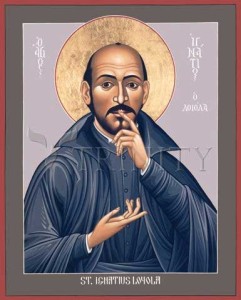 Discerning Hearts Reflection Questions:
Discerning Hearts Reflection Questions: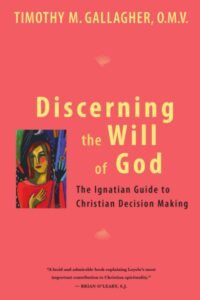

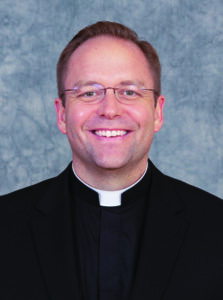

 A Sister of St. Thérèse: Servant of God, Léonie Martin – Bearer of Hope with Fr. Timothy Gallagher – Episode 13
A Sister of St. Thérèse: Servant of God, Léonie Martin – Bearer of Hope with Fr. Timothy Gallagher – Episode 13